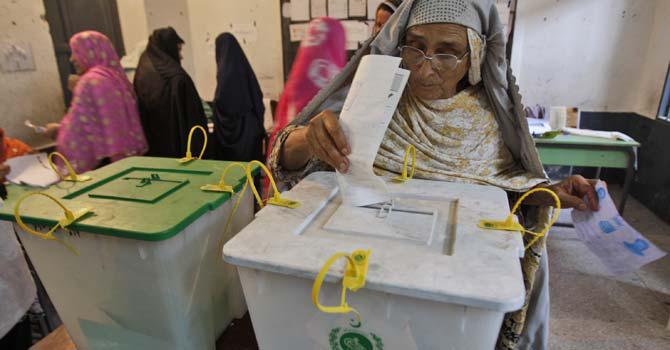Interviews were conducted by UPI Next PakPolWiki team before the May 11 elections.
Ajmal Khan, widely known as Baba Jee, worked as a businessman in Peshawar for 20 years. He recently transferred his voter registration to a new precinct: the Bajawor Agency in the Federally Administered Tribal Areas (FATA). During the last election he voted for Haji Ghulam Ahmed Bilour for the national assembly seat, but this year he will not be voting for him because he has transferred his voter registration to his permanent address in Bajawor Agency.
“I will go to my agency to vote but do not know the candidates who are running for office in my area of Bajawor.” Baba Jee decides for whom he should vote on the basis of how close the candidate is to the people of the constituency. Does the candidate live in the same area where he is running for office? Does the candidate own property and have a livelihood and family in that same area? How active the person is in reaching out to people in time of need is another important factor for Baba Jee. Other attributes like problem-solving skills, the ability to resolve disputes, personal character and public image, religious inclination, and academic qualification are all things Baba Jee considers when deciding form whom he should vote.
Hissamuddin, 33 is currently living in Peshawar and is registered in the Chitral District of Khyber-Pakhtunkhwa Province. She says she had been registered in Peshawar, but was transferred to Chitral when the new voter list came out.
“According to the new voter list, I have been dropped from the Peshawar voting list and added to the list in Chitral, meaning that on the day of election I will have to be there, which seems in doubt,” said Hissam.
For Hissam, the candidate’s political affiliation, religious inclination and past contributions to the constituency are very important factors in her decision about whom to vote for. She also said that any information that gives her an idea about the popularity of the candidate, an indicator of his or her being active in representing the community, helps her to make a decision.
Mohammad Farooq is a resident of Kohati Gate area and has been unemployed for a year. He considers three things when deciding who to vote for. Does the candidate have the necessary qualifications and leadership qualities? Has the candidate done real work in the constituency, or did the candidate get nominated just based on political affiliation? What are the candidate’s promises for the area, especially the security situation?
“I would like to know which past promises the candidate or party fulfilled,” said Farooq.
Bibi Zareen is a housewife and mother of eight children and does not know how old she is. She says her decision on voting day is influenced by the political campaigns in her area.
“I do not know what information I would need for voting. A party or candidate who serves the people in my area in a better way will win my vote,” says Zareen.
Abid Akhtar is a resident of Peshawar city and a government employee. He decides who to vote for based on their past performances.
“For me it is more important what changes the current political party or government made in my area and province. If I am satisfied with current change and development of the incumbents, then I will vote for them again, otherwise I will vote for the party or candidate who lost last time or is new.”
Akhtar says information about projects implemented or in progress and decisions made and implemented by the incumbents will help him decide how to vote.
Husna Gull is a private school teacher and mother of two children living in the old section of Peshawar. She said she decides how to vote on the basis of how peaceful things were during candidates’ times in office and how much prosperity there was.
“My brothers have graduated but have no jobs and there is no peace in this city due to bomb blasts. I will vote for the one who will promise to change this situation. Information about how any other political party or person will do things differently will help me to decide about voting. Everyone is speaking on television about change, but no one is saying how or in what way,” says Gull.



Comments